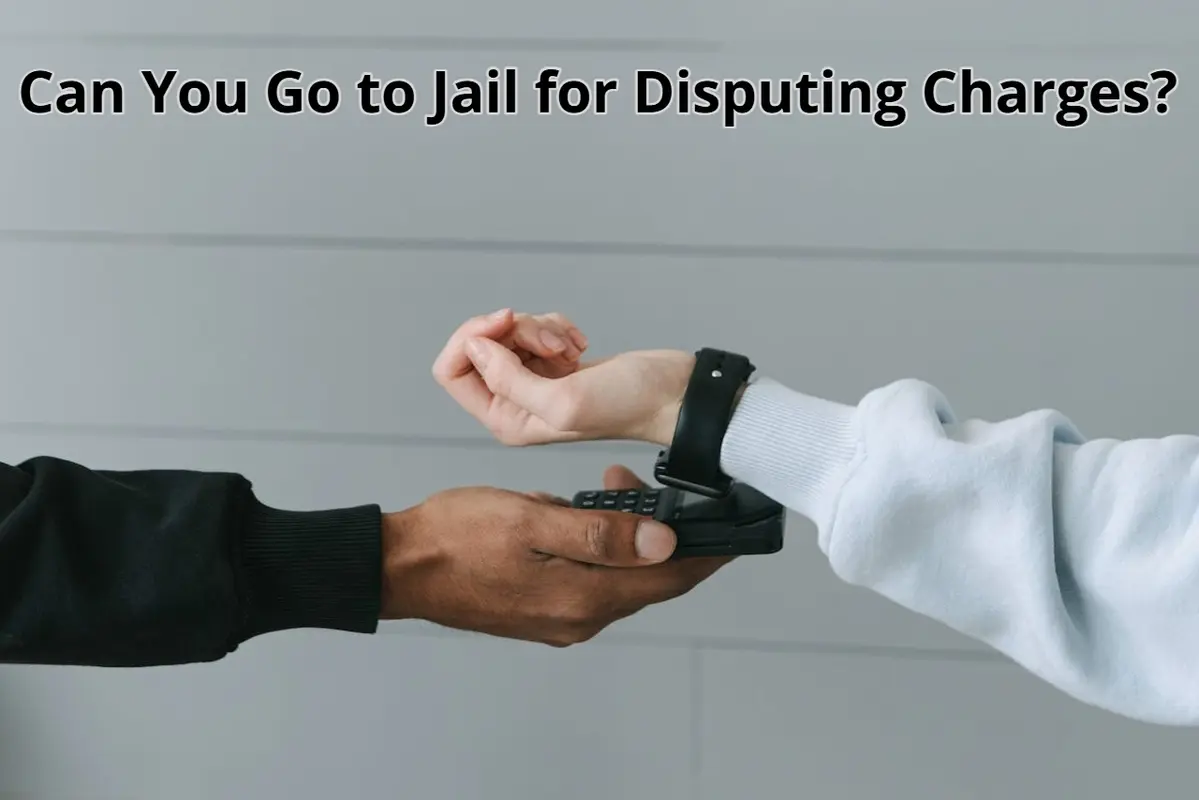So here’s something a lot of people don’t really talk about until they’re actually in it — can you go to jail for disputing charges? It sounds scary, right? Like, imagine trying to get your money back for something shady, and suddenly there’s this worry that it could turn legal. With how common credit card disputes and chargebacks have become, especially with online purchases, it’s not weird for people to start wondering if pushing back on a charge could land them in serious trouble.
Most of the time, it feels like we’re just standing up for ourselves as customers. But still, that tiny thought of what if this goes wrong? can creep in. That’s what we’re diving into here. What actually happens when someone disputes a charge, when does it become a problem, and could jail time ever be part of it?
When Can Disputing a Charge Turn Into a Legal Problem?
Most people think filing a chargeback or starting a dispute on a credit card is pretty harmless, and in most cases, it is. But things can get tricky when the information sent in the dispute isn’t true or when someone tries to get money back for something they actually received and used. That’s when questions like, Can you go to jail for disputing charges? start making sense. It’s not really about the dispute itself. It’s more about the intent behind it.
If someone lies during the dispute or fakes a story to win the case, that can be seen as fraud, and yes, credit card fraud is something that can lead to real legal issues. Banks and merchants look into these things more than people think, especially if a pattern shows up or the amount is high.
In rare cases, law enforcement might step in if it looks like someone is doing this on purpose. That’s when it moves from a simple refund request to something that might involve legal consequences. So it’s not the dispute that’s the problem, it’s how it’s done that matters.
What Makes a Dispute Risky or Safe?
Not all disputes are the same. Some are totally valid, and nothing happens. Others can raise flags if the details don’t line up. It really comes down to how honest the claim is and what kind of pattern the bank sees.
Some disputes that are usually safe:
- The product never arrived at all
- The item was damaged or completely different from what was described
- There was a double charge or an amount that looks wrong
- A subscription kept charging after cancellation
- The card was used without permission
These are the kinds of things that credit card companies expect to happen every now and then. As long as the claim is true and there’s some kind of proof, people don’t usually get into trouble.
What can turn a dispute into a problem?
- Making up a story just to get money back
- Filing a chargeback after already getting a refund from the seller
- Saying an item didn’t arrive when it actually did
- Disputing charges from a shared account just because of a personal argument
- Doing this kind of thing over and over again
That’s when people start asking can you go to jail for disputing charges because if the bank or seller catches on and things look shady, they might push for an investigation. And if the story was fake, that’s when trouble could start.
What to Do Before Starting a Dispute?
Before jumping into a chargeback or dispute, it’s smart to slow down and look at everything properly. A simple mistake or confusion can sometimes make a real charge look suspicious, which is why it helps to double-check things first.
Check the Charge Closely
Sometimes the charge comes from a company with a different name or billing info. It’s easy to get confused.
- Look at the full transaction details
- Search the company name online
- Think back to any small purchases or free trials that might’ve renewed
Contact the Merchant First
Going straight to the bank might seem easier, but many issues can be solved faster if people talk to the seller first.
- Send a quick email or call their support
- Ask for a refund or explanation
- Keep proof of the conversation
Gather Proof Before Filing
If it turns out the charge is really wrong and the merchant isn’t helping, then it’s time to file a dispute. Just make sure it’s backed up with solid proof.
- Receipts or confirmation emails
- Screenshots of refunds or cancellations
- Notes from any contact with the seller
Be Honest and Careful
The dispute system is there to protect people, not to undo buyer’s remorse. Filing a false claim or lying about a purchase just to get money back is what can turn into trouble. That’s when real questions like can you go to jail for disputing charges start becoming a concern.
- Only dispute when the charge is truly wrong
- Don’t use it to get out of paying for something that was actually delivered
- Know that banks can dig deeper if something feels off
FAQs
Q1: Can someone really go to jail for a chargeback?
Answer: Only in rare cases. If the dispute is fake or includes lies, it can be seen as fraud. That’s when legal action could happen.
Q2: Is it illegal to dispute a charge I just regret making?
Answer: Regret isn’t a valid reason for a dispute. If the purchase was real and the product worked as expected, filing a dispute could be risky.
Q3: Can banks tell if a chargeback is dishonest?
Answer: They don’t always catch it right away, but if it becomes a habit or there’s clear proof, they might investigate it more closely.
Q4: What if the company doesn’t reply to my refund request?
Answer: If the seller isn’t responding, a dispute might be the only option left. Just make sure the claim is true and backed up with proof.
Q5: Are debit card disputes treated the same as credit card ones?
Answer: They’re pretty similar, but disputing charges on a debit card can sometimes take longer and offer less protection depending on the bank.
Conclusion
So in the end, can you go to jail for disputing charges? It’s not something that usually happens, but if someone tries to cheat the system or files fake disputes, then yeah, it can lead to serious problems. The key is to stay honest, check everything twice, and only file a chargeback when it’s really needed. Whether it’s disputing charges on a debit card or credit card, just be smart about it. The system’s there to help, not to be misused. Keep it clean, and there’s nothing to worry about.




